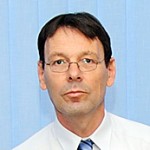
The research group uses laboratories A247 and A325 to work on the project.
In laboratory A247 we have 2 computers to perform calculations and simulations. We use appropriate software tools on computers.
Laboratory A325 is in the process of being formed as a purely research laboratory.
The initiation of market mechanisms in the energy sector leads to an increasing mutual influence of energy forms. Each energy form has a corresponding system (electric power, gas, thermal, etc.). Sources, transmission networks and consumers make up every system that has the associated infrastructure. Nowadays, power flows are analyzed only in the associated networks, regardless of the conditions in other types of energy networks.
The proposed research will analyze the mutual influence of different energy flows and different energy networks. The correlation factors of individual energy sectors in a complex energy environment will be investigated. Based on a complex view of energy flows, a unique model will be sought that would enable the analysis of the entire energy sector. Such models are extremely important in planning the development of an individual energy sector, but also for a complex view of the energy sector as a whole. The evaluation of the model will be analyzed and improved through energy balances.
In addition, over a period of 5 years, research will focus on optimizing the use of renewable energy sources, increasing energy efficiency and harmonization the needs of the energy system with the possibilities of renewable energy sources. Joint modeling of energy flows and comparative analysis will be a great help towards better integration of energy flows from renewable energy sources. Special attention will be paid to the analysis of the need for efficient storage of larger amounts of energy in the conditions of an increased share of intermittent renewable sources.